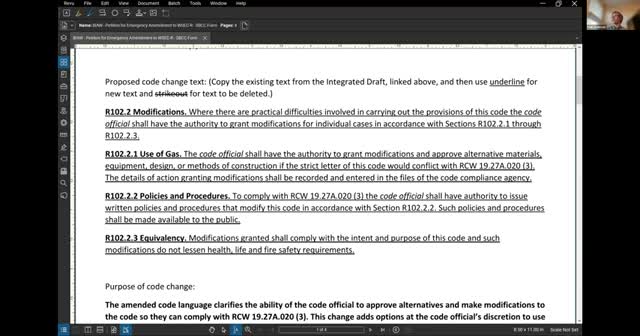Council names members for energy and IRC tags and asks chairs to recruit remaining seats
Get AI-powered insights, summaries, and transcripts
Subscribe
Summary
The council appointed technical advisory group members for the residential energy code, IRC and several ad hoc tags, and asked chairs and staff to continue recruiting to fill remaining vacancies. Several council members urged quicker outreach to fire services, local jurisdictions and DNR for expertise on wildland‑urban interface work.
At its Jan. 24 meeting the Building Code Council approved recommended rosters for several technical advisory groups (tags) in the 2024 code adoption cycle, including the Washington State Energy Code (residential) tag, the International Residential Code (IRC) tag and ad‑hoc tags such as single exit/multiplex housing. Staff said additional applicants were likely and asked chairs to recruit to fill remaining seats.
Appointments and gaps: The council confirmed staff and chair recommendations for primary and alternate tag seats where applicants were available and asked tags to continue recruiting for seats that had no applicants. Council and public commenters emphasized the need for fire service, land‑management and DNR participation on WUI/ad‑hoc tags to address defensible‑space and mapping issues.
Why it matters: Tags perform the technical review of petitions and proposed code amendments; a balanced mix of code users, local officials, industry representatives and subject matter experts is essential to develop proposals that can withstand economic analysis and public review. Council members noted some tags have fewer code users than expected and urged broad outreach.
Next steps: Staff will publish appointed tag rosters, provide onboarding and ethics training to new members, and convene tag meetings. Chairs were asked to fill vacancies and notify staff of recommended additions so they can be approved at the next available executive committee or council meeting.
